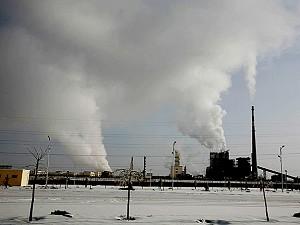TAIPEI - The widely followed murder case of the former Chinese Communist Party (CCP) secretary of Gansu Province, Shu Singguan, was solved yesterday. The official Chinese version states that it was a criminal case of robbery-murder. However, the quick break in the case did not receive public applause. On the contrary, it raised many speculations and suspicions on the Internet. The incident indicates that animosity against government officials is widespread in society.
The case has been the top news on Sina Net (www.sina.net) for the past several days. Though the Public Security Bureau revealed that the case was a premeditated case of robbery and murder, unanswered questions remained. On the Internet, posters were asking, “Why did they target his home? Why would these so called 'professional and vicious criminals' plan to target his home if there was not a huge fortune inside it?”
According to the Hong Kong's China News Agency, there have been frequent news reports of the slaughter of high government officials in the past several years. Under normal circumstances, there would be sympathy for the unfortunate murder victims. Nevertheless, many people on the Internet have applauded the slaughter deaths of these victims just because they were government officials. It shows that there is widespread animosity against government officials among the Chinese people.
The reason for this animosity against government officials is widespread resentment over the way many officials behave. Corruption and bribery run wild; officials abuse power, plunder common citizens, and cause deeply ingrained hatred among the mass populace. The first public reaction to news of officials being murdered or committing suicide is that these cases must be related to corruption and fraud.
There are bound to be cases where the deaths of government officials result from murder or suicide due to illness. Taking the death of the Director of the Statistical Bureau of Banpei City, Anhui Province, as an example, the local public security office investigated the situation and found that it was a case of suicide due to psychological anxiety. As to the cases similar to the murder of Shu Singguan, people tend to relate the death of government officials to corruption or bribery. It is not just a problem of people's distrust in the official investigative conclusion; it is also a direct expression of public resentment towards corrupted officials in power at the current stage of societal development.
According to the Chinese Communist Investigative Agency's reports, from 2001 to July 2005, there were a total of 152,440 cases of corruption and bribery, and more than one hundred and seventy thousand officials were reported to be involved.
According to a United Nations document, the current Gini Index of China is 0.45. The richest 20 percent of the population account for 50 percent of the total income and spending. The gap between the rich and the poor has far exceeded any reasonable limit.
The extravagant life style of certain super-rich Chinese and the large gaps between different classes of society inevitably create animosity. Exploiting the hard-earned assets and resources of the ordinary citizens, corrupt officials naturally become the targets of public criticism.




